Doctor Who‘s first producer Verity Lambert helped shape the programme into the success that it is today – a success that came (almost) overnight.
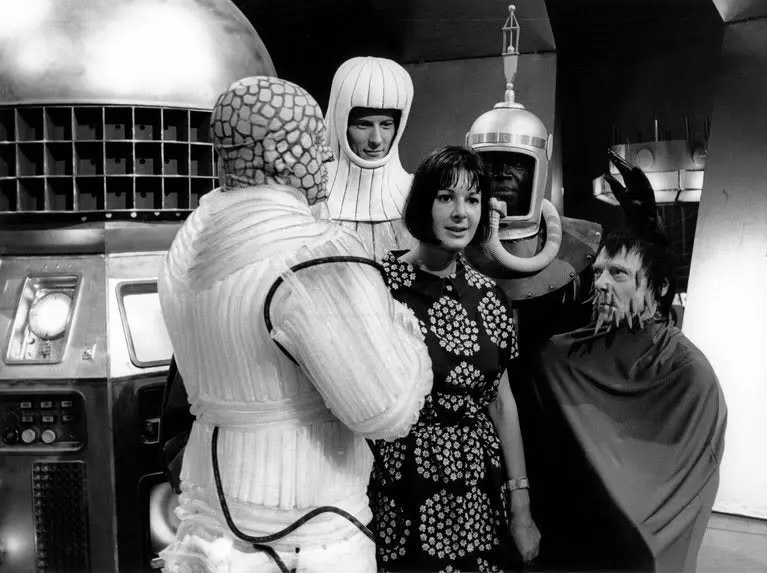
Doctor Who was in the germinative stages when Verity Lambert joined the production team. The BBC was still figuring out what kind of show it was going to be, and who was going to star in it. There was only a handful of potential scripts, and nobody had been cast. The one thing the Corporation was clear about, though, was that it had to fill a Saturday teatime slot between the sport and Juke Box Jury. It was intended for family audiences, and it had to be educational as well as entertaining.
Verity Lambert certainly adhered to this brief when she took over as producer, even if she wasn’t entirely happy with the initial batch of scripts which saw the main characters sent back in time to the Stone Age. As the series evolved, these purely historical adventures would become more epic and gritty, taking the time travellers to such exotic locales as the Himalayas to Aztec temples to first century Rome.
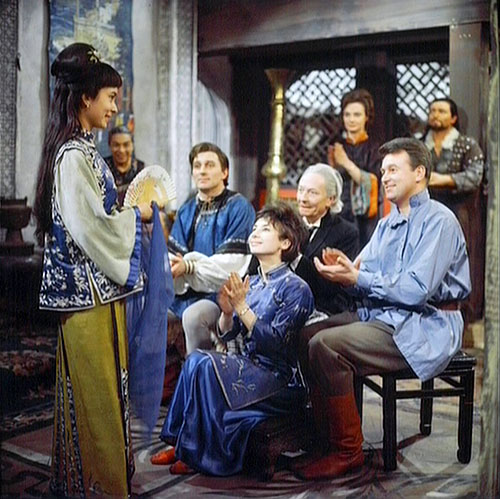
And the fact that Verity Lambert and her team were able to produce such convincing settings is a testament to their creativity. In its early days, Doctor Who was confined to a tiny studio in the BBC’s outdated Lime Grove facility, a location so defunct that it didn’t even have a lighting console – only dimmers on the walls. Space was at a premium and the venue would often overheat, so much so that the sprinklers would come on and drown the cast.
In time, Verity Lambert was able to convince the BBC that Lime Grove was unsuitable for Doctor Who‘s needs, and by 1964 the series had relocated to Television Centre.
Securing such a move was made possible by Doctor Who‘s immense early success, which had come rapidly. Undoubtedly, a large part of this was down to the Doctor’s mutant enemies the Daleks, who had made their debut in the programme’s fifth week. The public was mesmerised by these bizarre, metal-clad creations and the Daleks soon became as popular as the Doctor himself. In a matter of weeks, the viewing figures shot up from the 6 millions to the 10 millions. By Season Two, it frequently hit 12 to 13 million.
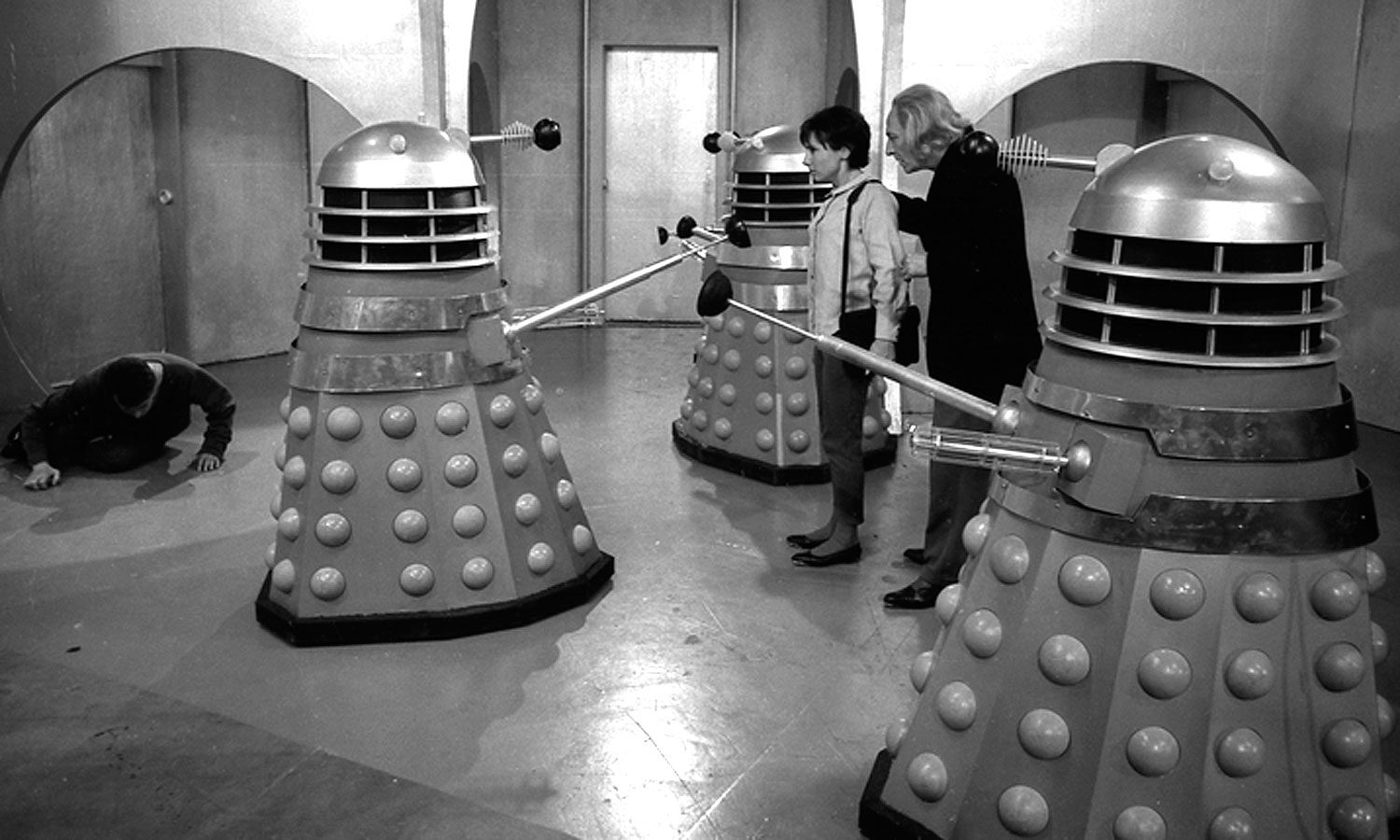
And whilst the Daleks’ creator Terry Nation deserves the credit for the baddies’ inception, a large portion should also go to Verity Lambert. She was one of the few people at the BBC who championed Nation’s scripts and fought hard to get the first Dalek serial in the can. It did, however, go against the BBC’s stipulation that Doctor Who should not include any “bug-eyed” monsters. In fact, the Corporation so disliked Terry Nation’s serial that, if anything else had been ready to go into production, the first Dalek story would never have been made.
Of course, Verity Lambert’s belief in these baddies paid off, and in fact the Daleks changed the future direction of Doctor Who. The BBC could not deny the metal mutants’ insane popularity, and from then on trusted Lambert’s creative instincts. As such, the Daleks became the first of a large array of monsters to grace our TV screens in the 1960s, being quickly followed by the Voord, the Sensorites, the Menoptra, the Zarbi, the Mechonoids… to name a few.
The consequence of this was that Doctor Who became altogether more frightening than originally intended. It had been conceived as a cosier, more educational family adventure series, but Verity Lambert was keen to tap into the programme’s more sinister, ethereal qualities.
One such example was the title music. The Doctor Who theme tune was written by an Australian composer called Ron Grainer, and realised electronically by Delia Derbyshire at the BBC’s Radiophonic Workshop. It was one of the world’s first electronically-produced pieces of music, and sounded distinctly otherworldly – and more than a bit creepy. Indeed, many a child of the 60s ran out of the living room (or hid behind the sofa) when they heard the Doctor Who theme tune playing.
It was accompanied by an equally unsettling title sequence – a montage of strange, swirling shapes which had been created by pointing a film camera at its own monitor. It was truly unnerving, but not as scary as it could have been; at one point, the visual effects team experimented with superimposing the Doctor’s face into these patterns – an idea which Verity Lambert ultimately vetoed, as she felt it went too far.
Even then, these were creative choices that Verity Lambert had to defend when she presented them to the BBC. In the 2013 drama An Adventure in Space and Time, (which tells the story of Doctor Who‘s inception) Lambert’s boss Sydney Newman heavily criticises the music and main titles, warning Lambert that she is not so much frightening the kids as traumatising them.
But in hindsight, the Doctor Who theme tune is another aspect of the programme which has truly embedded itself in the public’s consciousness. It’s iconic, much like the Daleks and their relentless cries of “exterminate!” It’s hard to imagine Doctor Who without its strange music, or psychedelic titles, or even the Daleks; one could argue that the series would not have been as popular, or enduring, had it not been for these creative decisions, all of which were pushed forward by Lambert.
And then there was the Doctor himself. There may be regenerations and Timeless Children, but nothing can change the fact that William Hartnell was the very first Doctor – the man who started it all, and the man who was cast by Verity Lambert. Hartnell’s Doctor represented the eccentric, loveable inventor-cum-grandfather who comforted the frightened children. They knew that they were safe when the Doctor was around. He became a household name – a member of the family, almost – and William Hartnell carried Doctor Who estimably for three world-changing years.
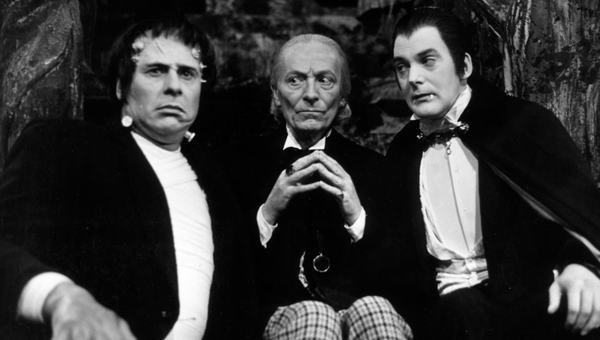
So would Doctor Who have been as successful or as long-lasting without William Hartnell, or the electronic theme music, or the bizarre ‘howlaround’ titles, or the Daleks? We will never know. But one thing we can be clear on – they all owe their thanks to Verity Lambert.
Why do you think Doctor Who has endured for so long? And which is your favourite story from Verity Lambert’s time? Let me know in the comments below.







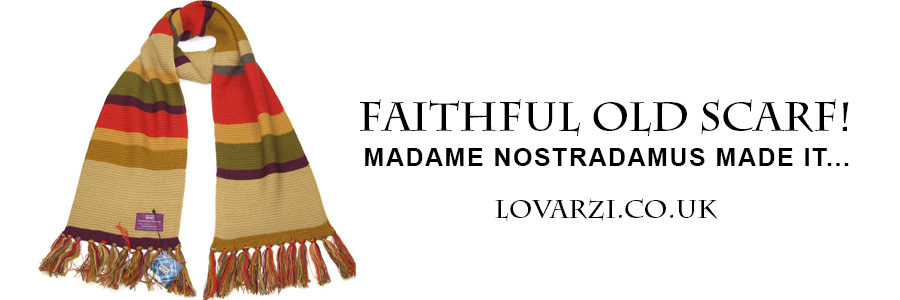

I.started watching in the Hartnell years. Have.gone off it in recent ones – preferred it as it was in the 60s and 70s. Saturday early evening several episodes per.story and less over elaborate special.effects – not to mention confusing plots.